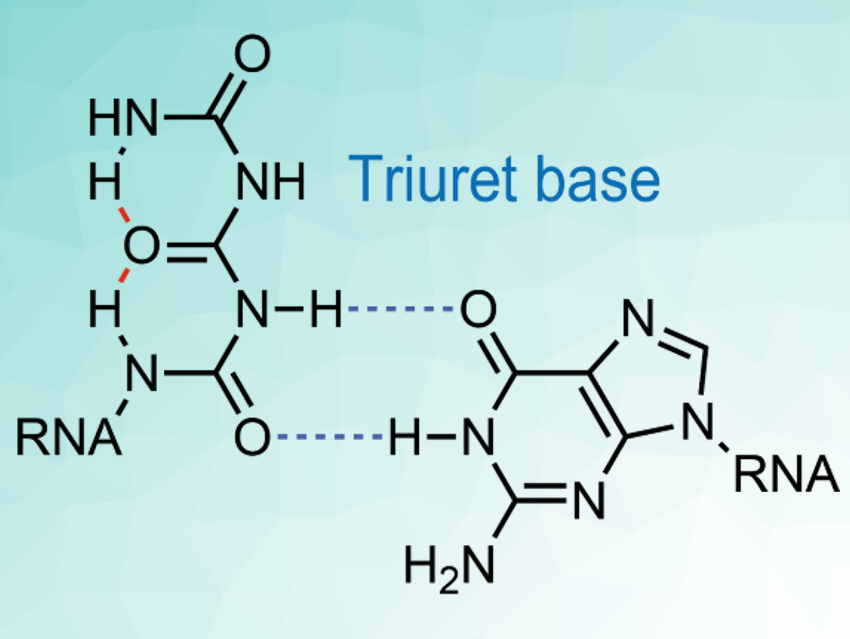The chemical origin of life is still not fully understood. According to the “proto-RNA world” hypothesis, there was an early genetic system composed of abundant organic molecules such as urea. These organic molecules could have been synthesized from inorganic precursors. However, the progression from such simple molecules to complex RNA bases is unclear.
Thomas Carell, Petra Rovó, and colleagues, Ludwig Maximilian University of Munich, Germany, believe that a type of RNA base could have emerged on early earth from a simple mixture of carbohydrates and urea. The team heated an aqueous mixture of ribose with biuret or triuret (i.e., bis‐ or tris-urea) in the presence of boric acid to form nucleosides. Nucleosides consist of a base and a sugar, in this case, ribose. Phosphoramidite building blocks were then synthesized from the nucleosides. This enabled the team to connect the nucleosides via phosphate groups and obtain short oligonucleotides.
The urea–riboside structures are remarkably stable. When placed in an RNA strand, the triuret base can form a selective base-pair with guanine (pictured). Since urea was probably abundant on prebiotic Earth, the researchers believe that this study provides compelling evidence for pre-biotic RNA precursors.
- Proto-Urea-RNA (Wöhler RNA) Containing Unusually Stable Urea Nucleosides,
Hidenori Okamura, Antony Crisp, Sarah Hübner, Sidney Becker, Petra Rovó, Thomas Carell,
Angew. Chem. Int. Ed. 2019.
https://doi.org/10.1002/anie.201911746




